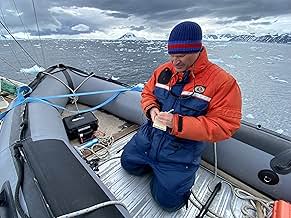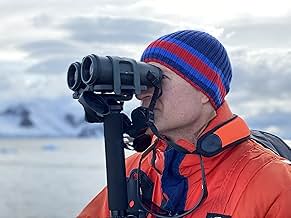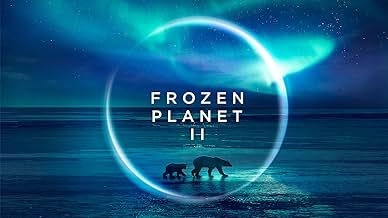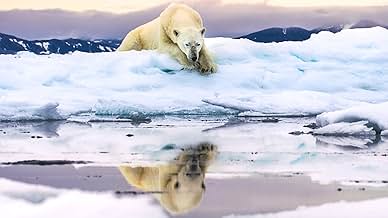NOTE IMDb
9,0/10
2,3 k
MA NOTE
Il suit la vie dans tout le quartier gelé de la planète, y compris les ours polaires, les tigres de Sibérie, les singes des neiges et les pingouins.Il suit la vie dans tout le quartier gelé de la planète, y compris les ours polaires, les tigres de Sibérie, les singes des neiges et les pingouins.Il suit la vie dans tout le quartier gelé de la planète, y compris les ours polaires, les tigres de Sibérie, les singes des neiges et les pingouins.
- Nomination aux 2 BAFTA Awards
- 1 victoire et 6 nominations au total
Parcourir les épisodes
Histoire
Le saviez-vous
- ConnexionsFeatured in Points of View: Épisode #79.2 (2022)
Commentaire à la une
Documentary showing difficult conditions animal and plant world deals with in still frozen parts of planet. Their adaptations to this places in order to survive, beat the competition of other species who did not ventured that far. It is gruesome as all predatory food chain is. But not for indulgence, but basic survival. Completely different story from that humans developed. They are pointing at the root cause of the melting icebergs and acceleration of the changes, what they mean for these specialised animals. Even we humans can not adapt as quickly to the surges in heat and consequences of it. Technology is our tool of adaptation, but is also a cause of the emissions causing the warming up. We need to change the energy sources and our level of population growth and material demands. It is not a favour we do to those animals, it will become a necessity in less time we want to admit to self and others. COVID came rapidly, warnings were there for years to invest in better research and prevention. Climate change is happening for some time and accelerates every year with more devastating consequences. Yet, people who are relatively comfortable, watching their TV programmes, either feel helpless or became ignorant. It is not happening to them. No flood water destroying the house irreversibly, no land slides, no hunger, no waterborne diseases, loss of relatives in many milder parts of the world. The shocks are sadly in the most extreme environments, be it polar regions, or tropics, where isolated animals and human population struggles every day. I do not think the filmmakers are extreme or selling the soap opera of animal world. The storyline is made in the way people can connect and see themselves in lives of other species. Most people project their emotions. And it helps them to realise animals feel I is mostly hunger, pain, fear, but also some joy. They are fighting for their lives every day and it is getting harder, and more fatal, shortening lives for the individuals and whole populations due to rapid disappearance and alternations to the environment they were adapting for very long time.
Should we intervene? Yes, we need to reverse the first intervention and stop heating up the planet. Otherwise these series maybe one of the last documentaries showing these animals still in their natural environments.
Should we intervene? Yes, we need to reverse the first intervention and stop heating up the planet. Otherwise these series maybe one of the last documentaries showing these animals still in their natural environments.
- martinalandscapes
- 26 sept. 2022
- Permalien
Meilleurs choix
Connectez-vous pour évaluer et suivre la liste de favoris afin de recevoir des recommandations personnalisées
- How many seasons does Frozen Planet II have?Alimenté par Alexa
Détails
- Date de sortie
- Pays d’origine
- Site officiel
- Langue
- Aussi connu sous le nom de
- Royaumes de glace
- Sociétés de production
- Voir plus de crédits d'entreprise sur IMDbPro
Contribuer à cette page
Suggérer une modification ou ajouter du contenu manquant

Lacune principale
What is the Brazilian Portuguese language plot outline for Terres de glace II (2022)?
Répondre



























